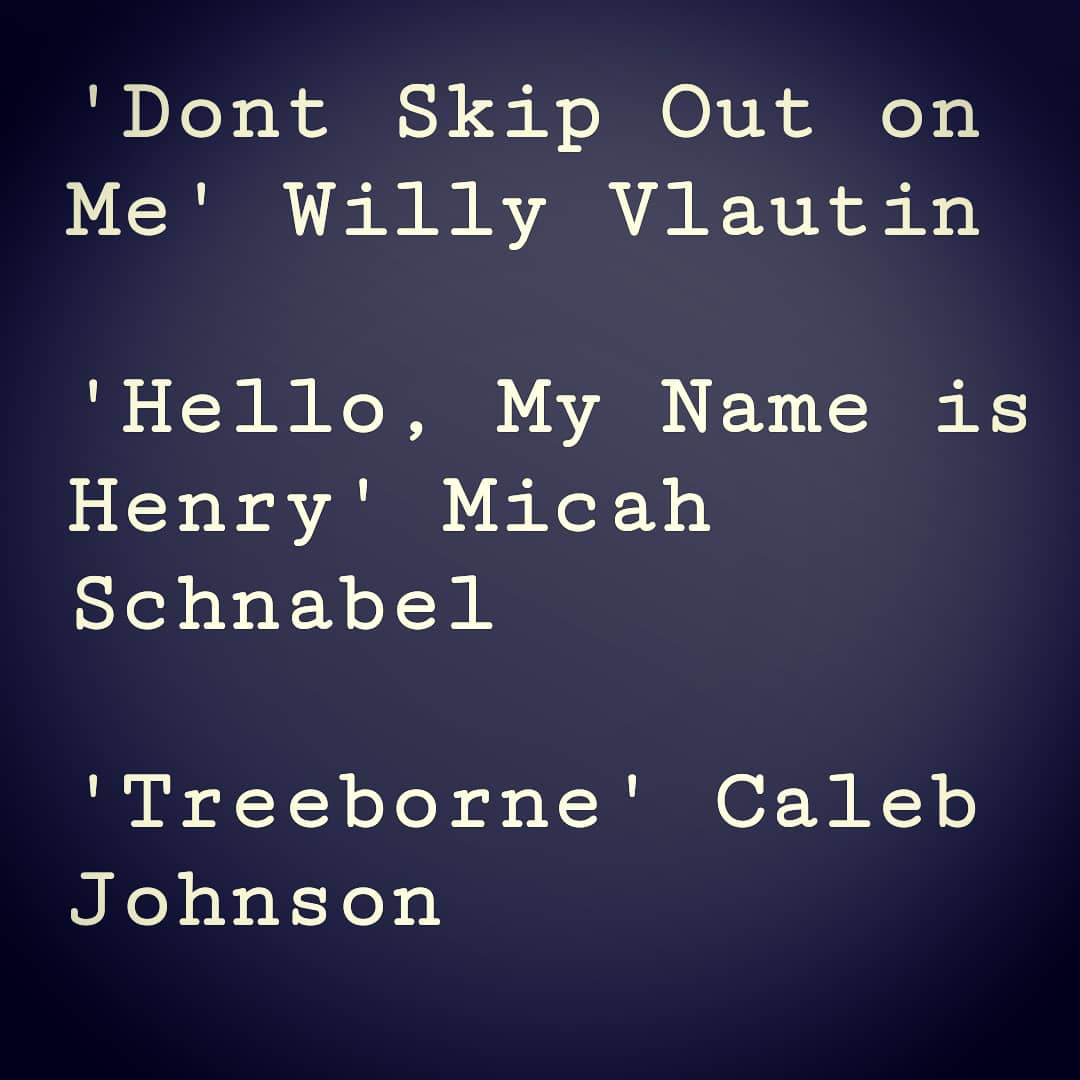Photo by Jason Earle
Cultural critic Steven Hyden (@steven_hyden on Twitter) recently ranked the thirty best Jason Isbell songs for a piece in Uproxx. Brian Koppelman (@briankoppelman on Twitter) responded with his own list. Naturally, I got to thinking about what songs I would include if anyone asked.
The number sounded daunting. Just thirty songs? Isbell has almost never missed during his career. Even as a kid in his early twenties he was writing some of the finest songs in American roots history.
If you want to be the best, you gotta imitate the best. So, I decided to take on the challenge of meeting two heavyweight cultural thinkers at their game.
The process of deciding my list of the thirty best Isbell songs looked like this. First, I listed the songs that immediately came to mind. That was good for about eighteen tunes in a two-minute span.
Then, I walked away and let the list marinate. Next came an examination of each album and some rearranging (How did I forget Live Oak at first?). Finally, the list was made.
It was not until after my group was finalized that I took the time to read Hyden and Koppelman’s lists. Of course, you will get little argument from me no matter what your list looks like. I just did not want to be swayed by either because I have so much respect for their work.
Photo by Jason Earle
What surprised me but shouldn’t have about my list is how heavy it is on the most recent three records. Isbell was my favorite writer of the three geniuses in Drive-by Truckers. I saw him play at a barbecue restaurant in Jacksonville Beach (twice) right after he went out on his own. I preordered the Southeastern vinyl.
I remember the record arriving at my apartment in Jacksonville and spending the day listening over and over again. Crying and wanting to immediately go out and write. Those early songs had lived with me for years. I consider myself really fortunate to be about Isbell’s age. I’ve grown into adulthood with his songs as the soundtrack- each one hitting me at the right time, exactly when I was ready for it.
Therein lies the power of a creative honing their craft. Isbell keeps getting better. Each successive release is stronger than the last. Only one of the three as yet released singles from the forthcoming Reunions made my list, but that decision was based purely on the fact that I have not had time to digest the other two. Early indications are this may be his best record yet.
With great respect to Hyden and Koppelman, I offer my list of Jason Isbell’s thirty best songs.
Photo by Jason Earle
Cover Me Up
Decoration Day
If We Were Vampires
Elephant
Speed Trap Town
Danko/Manuel
White Man’s World
Live Oak
Goddamn Lonely Love
Traveling Alone
Be Afraid
Outfit
Children of Children
Hope the High Road
Something More Than Free
Codeine
Alabama Pines
Chaos and Clothes
Other than “Goddamn Lonely Love,” Those first eighteen flew out of my sleepy brain this morning before coffee, morning pages, or a walk. A couple of them moved around, and “Goddamn Lonely Love” steadily worked its way up the list. The more I look at it, the more I think this is exactly right. Consider how good each one of those tunes is and how much they have impacted your thinking.
19. Stockholm
20. Tupelo
21. Relatively Easy
22. Dress Blues
23. Yvette
24. Tour of Duty
25. Flying Over Water
26. Hudson Commodore
27. If It Takes a Lifetime
28. Flagship
29. Palmetto Rose
30. Last of My Kind
The last few are always the hardest. “Yvette” went in and out, up and down this list. After looking at Koppelman and Hyden’s lists, I wonder whether I should have included “Songs She Sang in the Shower” and “Cumberland Gap,” both of which were on my list at some point.
Anyone reading this is asking about “Super 8” or “24 Frames” or “Different Days.” The purists may wonder where “Chicago Promenade” fits. You are right, but I’m not wrong. Debate and discussion are encouraged in the comments or over on Twitter.












